This article delves into the significance of link equity, which is the value that hyperlinks impart to web pages, a critical factor in SEO as it affects page rankings within search engines. We discuss the essence of link equity, its importance for SEO purposes, and strategies for enhancing it to achieve improved SEO outcomes.
What is link equity?
Link equity, also known as “link juice,” is the value or authority that a webpage confers to another through hyperlinks. This principle plays a critical role in SEO by affecting how search engines rank web pages. Link equity can be seen as an endorsement. When your page receives a hyperlink from a respected site, it’s akin to that site endorsing the quality and pertinence of your content. The greater the credibility of the linking website, the more significant amount of link juice passed – making for an even stronger endorsement.
It’s important to understand that links are not all weighted equally. Several factors influence how much link juice is transferred between web pages, such as how topically related the linked content is and what level of authority belongs to the linking website itself. Both internal and external links contribute to building up a webpage’s overall link equity – though some may carry more weight than others – with internal links playing an essential part in circulating link equity around your own site, which highlights other relevant pages’ significance within it.
Meanwhile, external links pointing towards your website draw invaluable link equity from sources beyond your domain – thus enhancing its perceived trustworthiness among search engines.
The importance of link equity in SEO

The concept of link equity plays a pivotal role in the realm of search engine optimization (SEO) by signaling to search engines that certain webpages are valuable and credible, thus boosting their standing on search engine results pages (SERPs). A webpage enriched with substantial link equity stands a greater chance at achieving prominent positioning within SERPs. This prominence can lead to increased organic traffic while simultaneously elevating the site’s credibility and perceived trust.
The impact that link equity has is influenced by several criteria, including both the relevance and authority of the linking webpage. Inbound links originating from websites that hold high relevance and authority themselves impart more weight in terms of trust as understood by search engines, which often translates into elevated rankings for receiving pages. Ultimately, possessing strong link equity is critical for improving one’s placement on a given search engine’s rankings list as well as fortifying an impactful online presence.
Key factors influencing link equity
A multitude of critical elements affect the allocation of link equity. Notably, how much authority the linking website has, the relevance and surrounding context of links provided, along with their quantity and position on a webpage, are all influential in establishing the degree to which link equity is transferred.
Understanding these determinants can steer you towards effectively orchestrating your link building efforts with an aim to maximize SEO advantages.
Authority of the linking website
The significance of the linking site’s authority is crucial when evaluating the link equity that it transfers. High Domain Authority (DA) or Domain Rating (DR) sites are better at transferring substantial amounts of link equity. A backlink originating from a website with high link authority can increase the rankings of the linked page much more significantly than one coming from a low-authority website could. Utilizing tools such as Moz’s Domain Authority can assist you in determining both the domain and page authority of websites that provide links to your content.
For optimal benefit, focus on acquiring backlinks from domains deemed credible and authoritative within your niche market. Engaging in quality content creation, cultivating professional relationships, and performing targeted outreach are all effective tactics for building links with high-authority websites. These actions will bolster not just your link equity but also reinforce your site’s credibility and reputation overall.
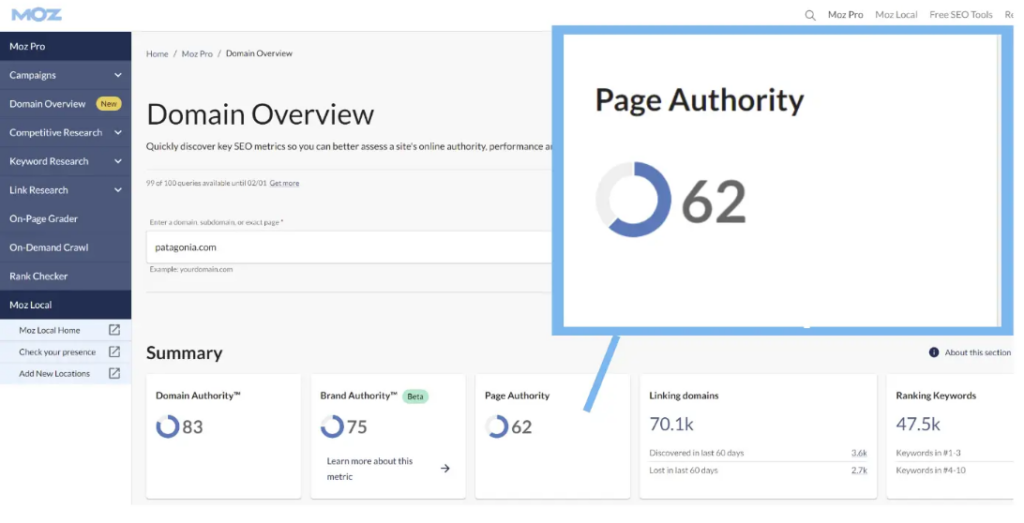
Relevance and context of links
When building links, it’s essential to focus on the context and relevance of those links. Search engines prioritize links that are relevant to the content they’re associated with since this helps in accurately understanding and gauging the value of said content for ranking purposes. A link derived from a page discussing related topics is more beneficial than one coming from an unrelated web page due to its relevance.
Obtaining relevant links serves two important functions. They not only pass along greater link equity, which boosts search engine rankings, but also enhance user experience by offering useful supplementary information. While constructing your linking strategy, strive for connections originating from pages that share close topical relation with your own content as these will yield better outcomes in terms of passing link equity and elevating your position in search engine results.
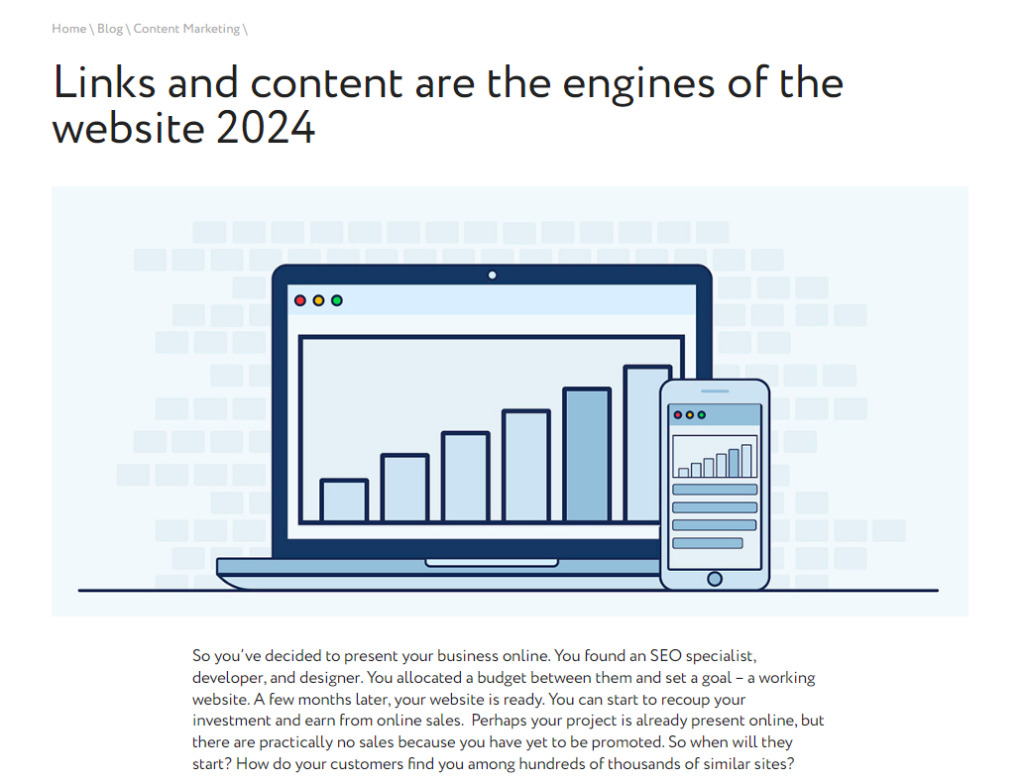
Number and placement of links
The way link equity is distributed can be heavily impacted by both the quantity and arrangement of links on a webpage. Imagine linking equity as juice in a pitcher – if you pour it into numerous cups, each cup gets less. In this vein, if a page has an abundance of outbound links, it will distribute lesser link equity to every linked page. Controlling how many links are present on your webpage is crucial for avoiding dilution of link equity.
Where you place these links also plays an important role. Links that are incorporated within the main body content tend to carry more weight than those placed in sidebars or footers. By thoughtfully positioning your links in areas where they stand out more prominently, you can improve the amount of link equity transferred to linked pages which consequently boosts their SEO value.
Internal vs external links
Both internal and external links are crucial components of SEO. Internal linking facilitates user navigation by connecting different pages on the same website, thereby spreading link equity throughout the site. Such strategic use of internal links enables search engines to decipher your content’s structure and hierarchy, which in turn enhances your website’s overall SEO value.

On the other hand, external links connect to web pages on separate websites and serve to enhance the trustworthiness of your content through association with respected sources. Search engines regard these connections as endorsements from third parties that reflect on the relevancy and credibility of your content. Maintaining a balance between internal and external linking is essential for an effective SEO approach because each type enriches your site’s link profile in distinctive ways.
Nofollow links and their impact
The rel=”nofollow” HTML attribute is used to create nofollow links, signaling search engines not to track or credit the link. Such links do not transfer PageRank and typically don’t contribute directly to improving search engine rankings. When originating from high-quality and relevant sources like Quora, YouTube, or Wikipedia, they still offer value by driving traffic and delivering indirect SEO advantages.
Despite nofollow links usually failing to convey link equity directly, there are instances where a search engine might index them anyway. They are also implemented widely as a tool against spam in areas with user-generated content such as blog comment sections.
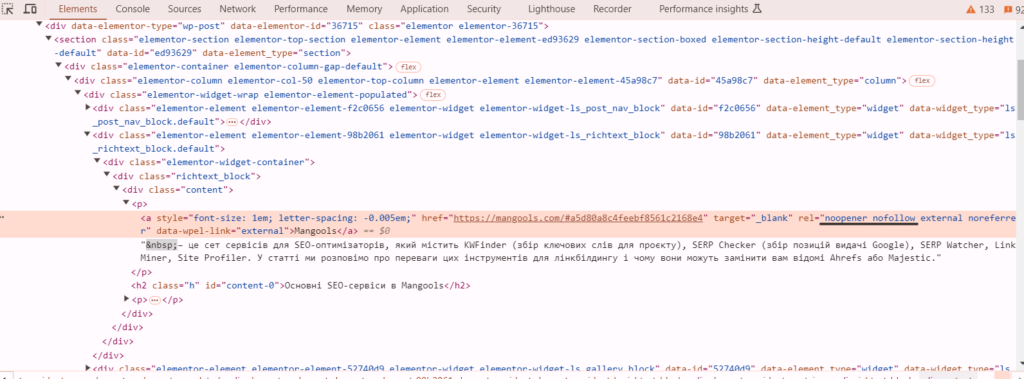
Understanding the functions and effects of nofollow links is key for developing an effective strategy in link building that optimizes their use.
Strategies to maximize link equity
To optimize link equity, one must focus on generating top-notch backlinks, strategically performing internal linking, and carefully selecting anchor texts. These practices can markedly enhance the SEO standing of your website and guarantee a steady distribution of link equity.
Building high-quality backlinks
To optimize link equity, it’s crucial to generate high-quality backlinks. Here are some tactics you might employ:
- Develop in-depth content such as definitive guides that can draw links from esteemed web properties.
- Produce enticing materials like infographics and eBooks that may prompt other sites to reference your work.
- Utilize platforms such as Help a B2B Writer and Featured.com to position yourself as an information resource for journalists and bloggers, thereby gaining valuable backlinks from media outlets.
An additional method is seeking out obsolete resources still being linked by other websites and proposing they substitute those with updated links pointing to your pertinent material. Adopting these methods will not just amass superior quality backlinks, but also boost the overall credibility of your site along with its link equity.
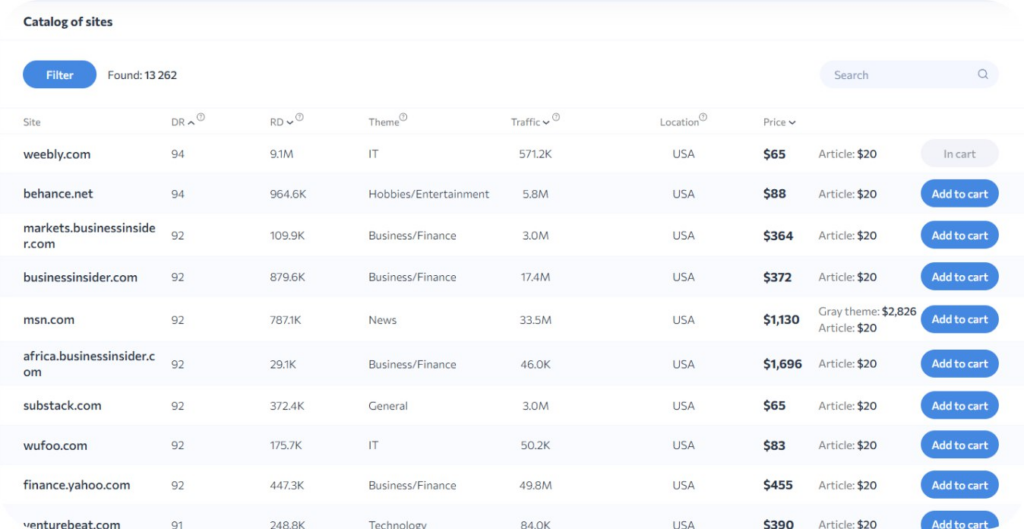
Effective use of internal linking
Optimizing the use of internal links is a highly effective strategy for distributing link equity throughout your site. By embedding these links within pertinent content, you not only facilitate navigation for users, but also direct search engines toward your most significant pages, thereby increasing their SEO value. Creating content clusters centered around primary subjects can amplify the effectiveness of internal linking strategies.
Establishing connections from your homepage to principal pages can transfer considerable link authority and elevate their positions in search results. It’s crucial to maintain moderation. Excessive internal linking may give a page an undesirable spam-like appearance, while too scanty utilization might obstruct search engine indexing processes. A judiciously implemented approach to internal linking could markedly enhance both traffic flow and SEO effectiveness on your website.
Utilizing anchor text wisely
It is crucial to thoughtfully choose anchor text in order to maximize the impact of link equity. Using relevant anchor text that incorporates descriptive keywords can greatly enhance the SEO benefits of your internal links. It’s essential to diversify your use of generic, branded, and keyword-focused anchor texts so as not to over-optimize and make your links seem like spam.
To avoid misleading search engines regarding what your pages are about, refrain from assigning identical anchor text to different pages. By varying the anchor texts used for linking throughout your site, you can improve the distribution of link equity while avoiding risks associated with content cannibalization. A deliberate approach towards crafting effective anchor texts can lead to better placement within search engine rankings and boost overall SEO effectiveness for your website.
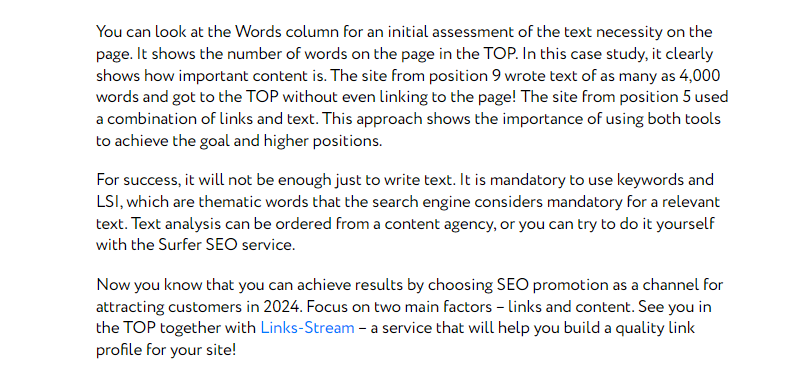
Tools for measuring link equity
A variety of instruments exist to assess and track link equity, which provides valuable information about your website’s performance in terms of SEO. Ahrefs is a widely-utilized platform for observing and dissecting link equity. It presents intricate reports on the sources of backlinks and their respective calibers. For comprehensive insights into backlink analytics that reveal how your link building efforts are performing, SEMrush offers an extensive suite.
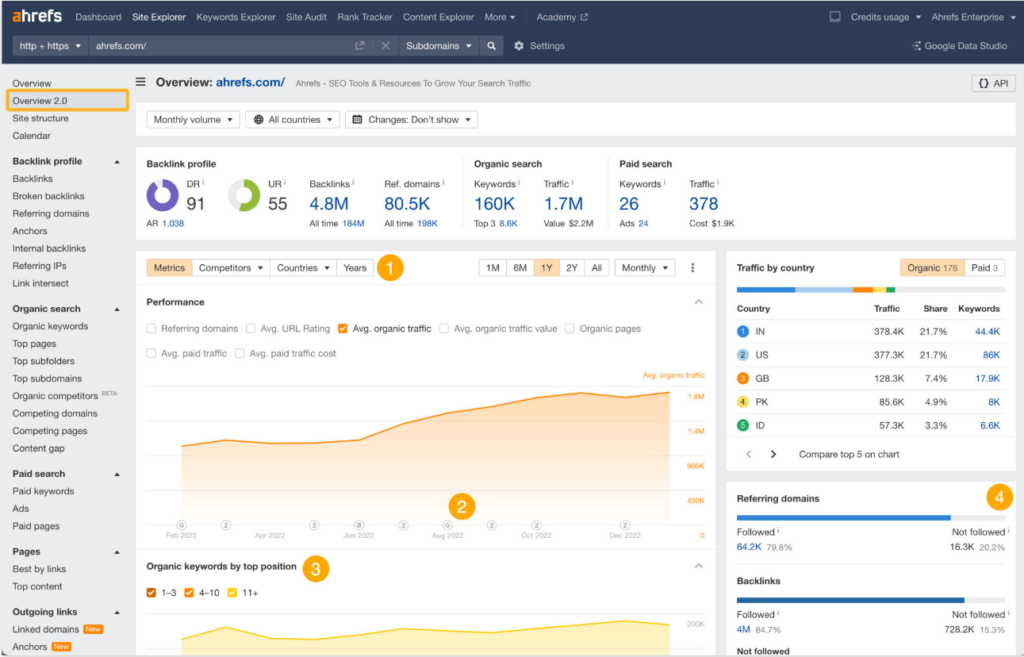
Google Search Console delivers its services free of charge, recording data such as clicks and impressions to shed light on the way links affect site visibility online. Market Brew introduces a unique measurement known as Link Flow Share that calculates link equity by evaluating different attributes of links – this gives an intricate perspective regarding the significance each individual connection holds. Leveraging these tools can significantly aid you in honing your strategy surrounding link equity thereby enhancing your website’s presence with regards to search engine optimization (SEO).
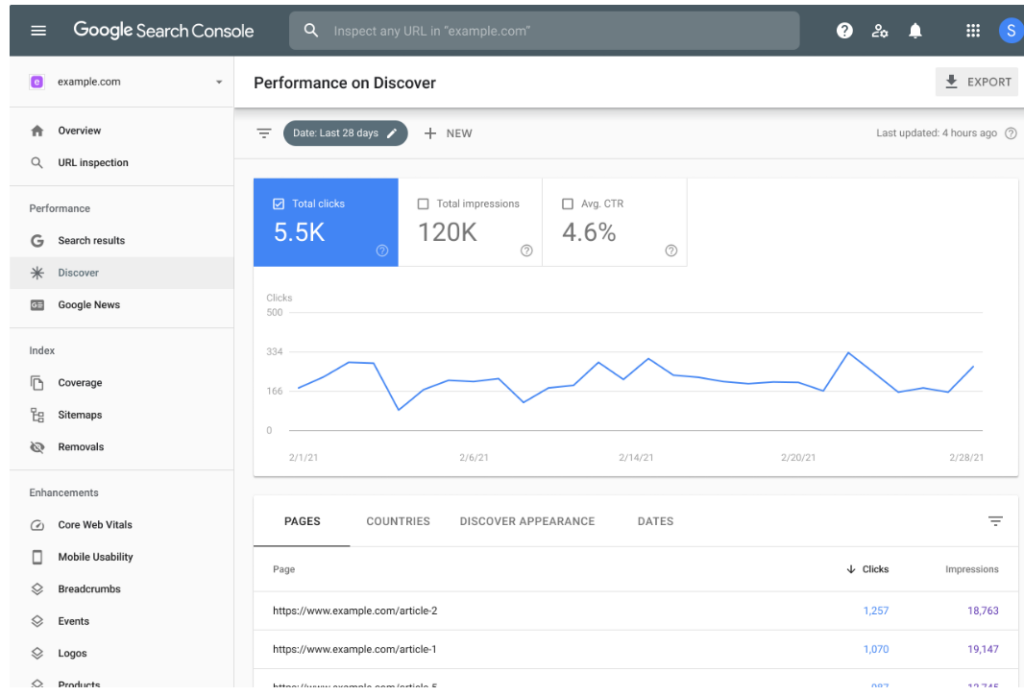
Common pitfalls to avoid
Avoiding typical pitfalls in your link building efforts is crucial for maintaining strong link equity. Creating links to and from pages that lack relevance can lead to confusion among users and search engines alike, casting doubt on the naturalness of your links. It’s important to keep key pages easily accessible and not hidden deep within your website structure. This helps preserve their visibility as well as ensures a balanced distribution of PageRank.
When there are links pointing to non-functioning pages, it interrupts the flow of link equity while also causing dead ends for both users navigating the site and crawlers scanning it. Proper use of redirects is essential: linking directly to a page rather than through an unnecessary redirect can prevent dilution of link equity. Failing to attend to orphaned pages – those without any inbound links – can mean missing out on potential ranking improvements and may render them invisible online. Being alert about these common errors will support you in keeping a solid strategy for preserving link equity.
Summary
To summarize, the significance of link equity should not be underestimated in the realm of SEO as it greatly impacts search engine standings and a site’s trustworthiness. By comprehending crucial elements that influence link equity – which includes the reputation of the linking website, appropriateness, along with quantity and positioning of links – you can tactically steer your efforts in link building. The judicious use of internal versus external links, employing nofollow tags correctly, and dodging typical mistakes are vital to preserve robust link equity.
In pursuit of optimizing your website’s SEO effectiveness through enhanced link equity, it is wise to focus on accruing superior quality backlinks, refining internal linking practices as well as prudent utilization of anchor text. With resources at hand for assessing link equity coupled with learning from successful examples in practice, you’re well-equipped to elevate your SEO tactics for more pronounced online prominence.
If you're looking for natural links for your website, the Links-Stream team has been successfully promoting websites to the top of Google for over 8 years through link building. They will develop a tailored link building strategy that fits your niche and budget.
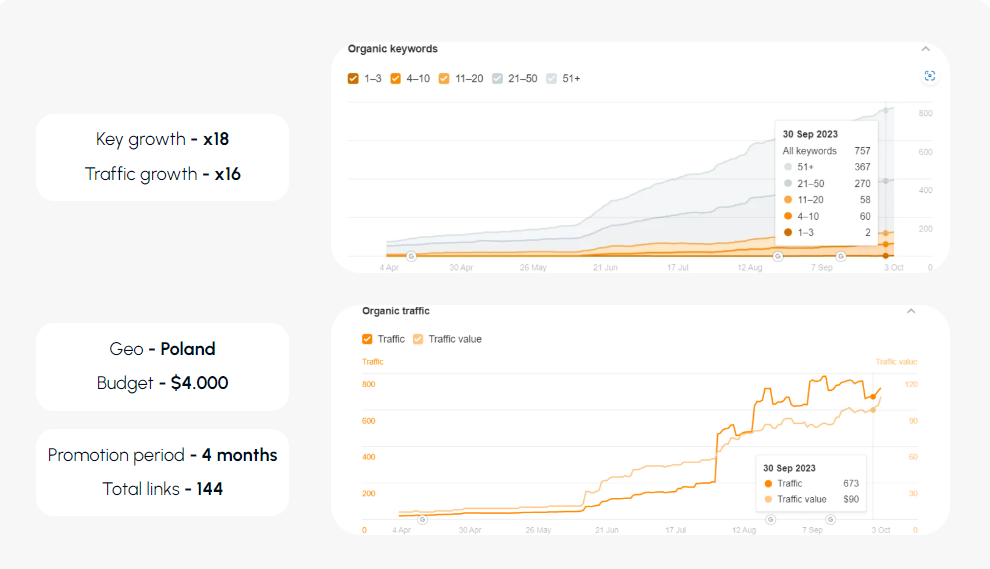
Frequently asked questions
What is link juice?
The concept of link equity, commonly referred to as link juice, represents the link authority or value transmitted from one webpage to another via hyperlinks, which influences search engine rankings.
How does link equity affect SEO?
By boosting site credibility, link equity enhances SEO and elevates search engine rankings, which results in an increase of organic traffic.
What are nofollow links, and do they impact SEO?
Using the rel=”nofollow” attribute, nofollow links signal to search engines that they should not follow these hyperlinks or attribute any significance in terms of PageRank. When originating from reputable and pertinent websites, such links can still yield indirect SEO advantages despite their inability to pass PageRank directly.
How can I build high-quality backlinks?
Focus on producing detailed content and developing valuable resources while engaging in networking and outreach efforts, as well as pinpointing obsolete resources that present opportunities for backlinking. Utilizing these tactics can aid in the formation of a robust backlink profile to ensure high-quality link-building.
